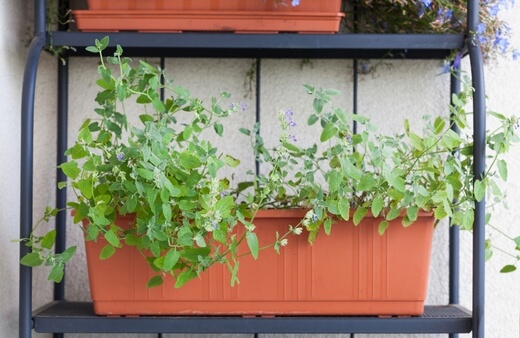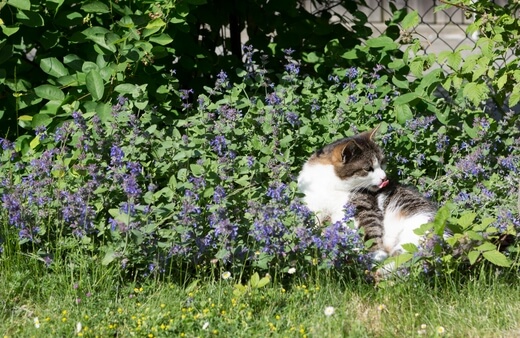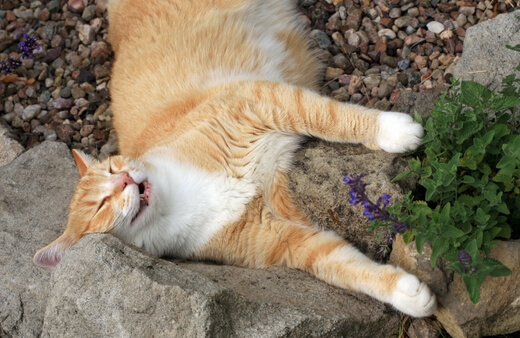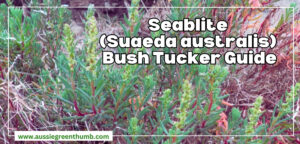Cats are beloved pets to many, and as their carers, we naturally want to make sure they feel well and happy. One of the most effective ways to do this is by providing them with catnip - a seemingly magic herb for cats, of which they are typically huge fans.
More...
Nepeta cataria, also known as catnip and catmint, is an herb that can be grown indoors or outside, and it provides an interesting range of benefits for cats. While catnip is the herb most commonly associated with cats, others, such as parsley and chamomile, can also provide them with several health benefits.
That said, not all herbs are safe to give to a cat or kitten, so, as a cat parent, it's important to know which is which.

How to Grow Catnip in Australia
Catnip is a member of the mint family and is surprisingly easy to grow. It is a herb that can be grown from cuttings or seeds, and thrives in well-drained soil and an abundance of sunlight.
The most optimal time to plant catnip is in the spring, and so long as it receives plenty of water and sunshine, it should flourish. Once a catnip plant reaches around one foot (12 inches) in height, you can cut the top 2-3 inches off it, leave the cuttings to dry out, and then store them in an airtight container.
Catnip is a convenient herb to grow at home, as it generally does well inside or out. If you prefer to grow it indoors, it's essential to ensure that it gets a good deal of sunlight - you can also use an artificial grow light if you can't find a spot with enough of a natural light source.
Additionally, it's important to make sure that you use a pot with good drainage, so that you can water it regularly without risk of flooding the soil.
If you choose to grow catnip outdoors, plant it in a location where it can bathe in plenty of sunlight, and unless you get lots of rain, it will still need to be watered regularly. If you live in an area that experiences any harsh winter weather, it's best to plant the catnip in a container that you can easily move indoors whenever there's a cold snap.
Benefits of Catnip for Cats

Catnip contains a chemical compound called nepetalactone, which is the component responsible for the plant having such a positive effect on cats. When cats inhale the scent of catnip, they will typically exhibit a range of interesting behaviours, such as rolling around, rubbing, and generally becoming more playful. These behaviours are called the 'catnip response,' and are widely believed to be stress-relieving for cats - in most cases, they certainly look like they're having a blast.
New research published in Science Advances also provides strong evidence that one of the key drivers behind the catnip response is mosquito bite prevention, given that nepetalactone features mosquito-repelling properties.
The study found that, by rubbing themselves on the catnip plant and anything treated with it, cats were instinctively protecting themselves from being bitten. The research also demonstrated that the activation of a cat's opioid reward system is involved in the catnip response, further backing up the theory that cats experience intense pleasure from catnip.
Catnip can also be useful for helping to stimulate a cat's appetite, as well as to alleviate many feline digestive issues. If your cat is ever experiencing tummy troubles, such as constipation, it's well worth trying to give them a small amount of dried catnip to help remedy the problem and make them feel better.
Another benefit of catnip is that it can help with relaxation. If your cat is suffering from anxiety or stress or having the zoomies, giving them a small amount of catnip can make a significant difference in helping them to feel more relaxed. This can be especially useful if you are travelling with your cat, going to the vets, or if they ever seem to be experiencing separation anxiety.
More on Catnip and Herbs for Your Cats
Are all cats affected by catnip?


Get Your Free Guide:
Master Growing Australian Natives eBook
A Must Have Complete Guide for Every Australian Garden
Get Your Free Guide:
Master Growing Australian Natives eBook
A Must Have Complete Guide for Every Australian Garden
Unfortunately no, not all cats are responsive to catnip. Only approximately 50-75% of cats will respond to catnip, while the rest will show little-to-no reaction, so don't be alarmed if your kitty doesn't seem fazed by it.
Either way, the relaxing and sometimes seemingly euphoric effects of catnip usually only last for around 10-15 minutes, so on its own, it's not a long-term solution for stress or anxiety.

What other herbs are good for cats?
While catnip is the herb most synonymous with cats, there are many others that they can benefit from. That said, it's also important to note that not all herbs are safe for cats. Some herbs can be toxic and must be avoided, while for others, it's all about balance.
For example, parsley is safe for cats to eat in small quantities, but in larger amounts, it can cause photosensitization, in which their skin can be damaged more easily by the sun.
Chamomile is a herb with natural sedative properties that can be used to help cats relax and sleep. We humans commonly use chamomile to help us relax, sleep and address gastrointestinal issues, and it can also help cats in the same way.
Valerian root is another herb that can help cats relax and sleep, and it is thought to help reduce their anxiety and stress.
Peppermint (also, of course, a member of the mint family) is another commonly used herb for alleviating stomach issues, such as nausea and vomiting, and it’s also a natural insect repellent which can help keep fleas and other pests at bay.
Which herbs must be avoided?
There are several herbs that should be avoided when it comes to cats. Garlic and onions, for example, can be toxic to cats, with the potential to cause anaemia. Additionally, pennyroyal, wormwood, and tansy are other examples of herbs that can be extremely toxic to cats and should be avoided at all costs.
As a responsible pet owner, it's vital to do your research before introducing any new foods or herbs into your cat's diet, and it's best to stick to ones you know are safe and have proven feline benefits.
If you are unsure of any particular foods or herbs, consult with your veterinarian before letting your cat tuck in. Check out our list of non-toxic indoor plants safe for pets you can grow in your home.
Looking for more plants to grow for your feline friends? Check out our comprehensive guide on how to grow cat grass in Australia.
Wrapping Up Our Catnip Growing Guide
If you're a cat lover with green thumbs, it makes sense to grow your own catnip, although it's so easy to grow that even a cat parent with few skills in the gardening department could still pull it off.
Of course, it's a good idea to check whether your cat is actually one that responds to catnip before you go to the trouble of growing it; if they do, it will be well worth the effort.
Published on February 28, 2023 by Maisie Blevins
Last Updated on September 20, 2025




